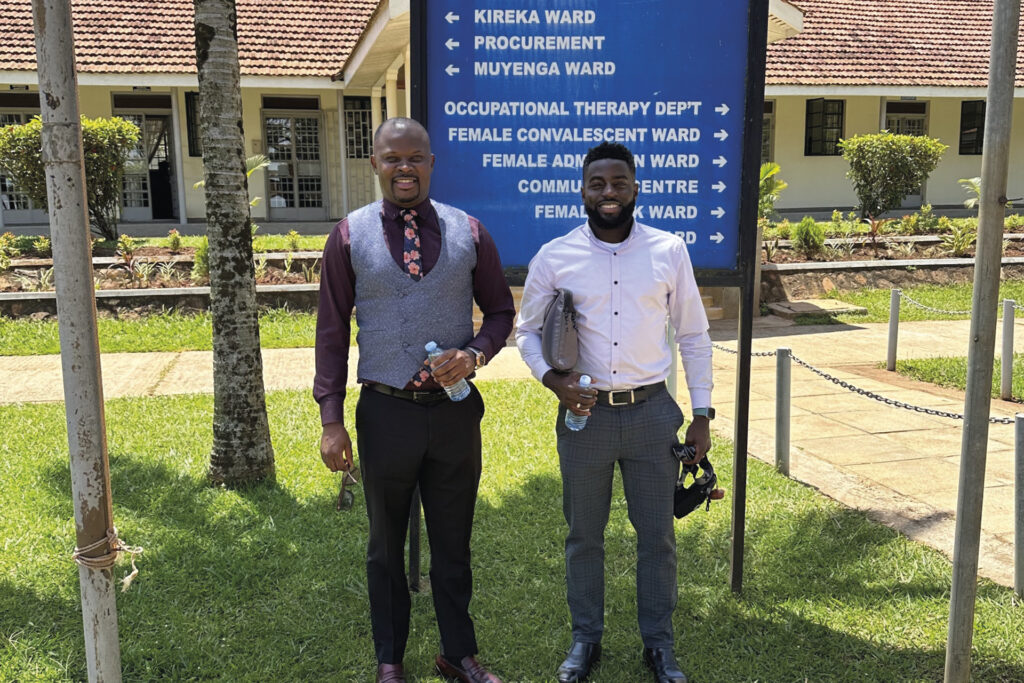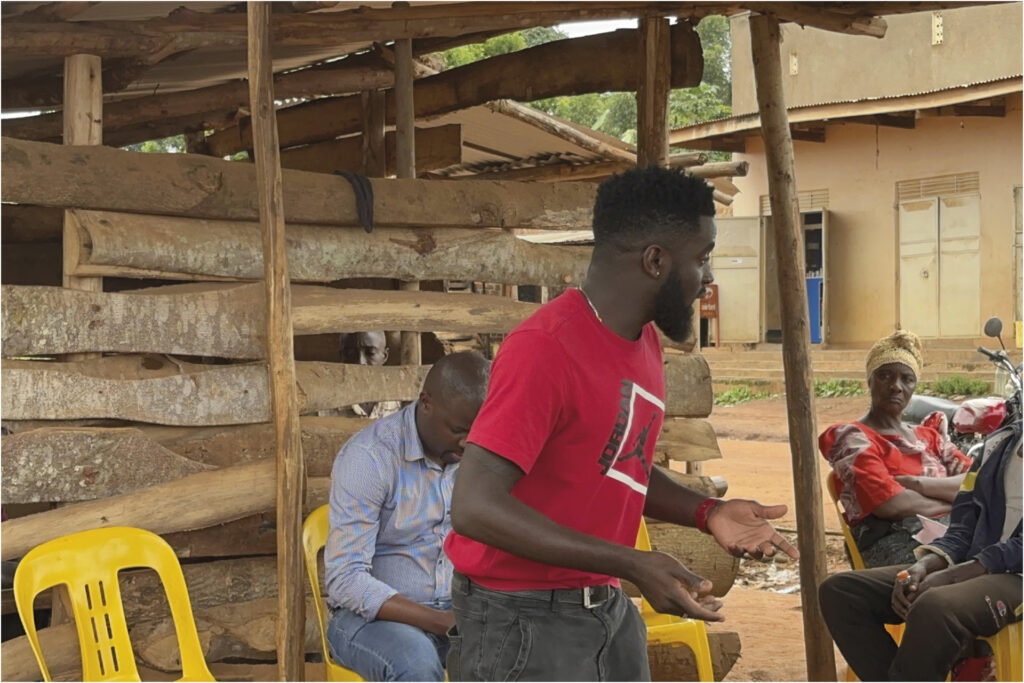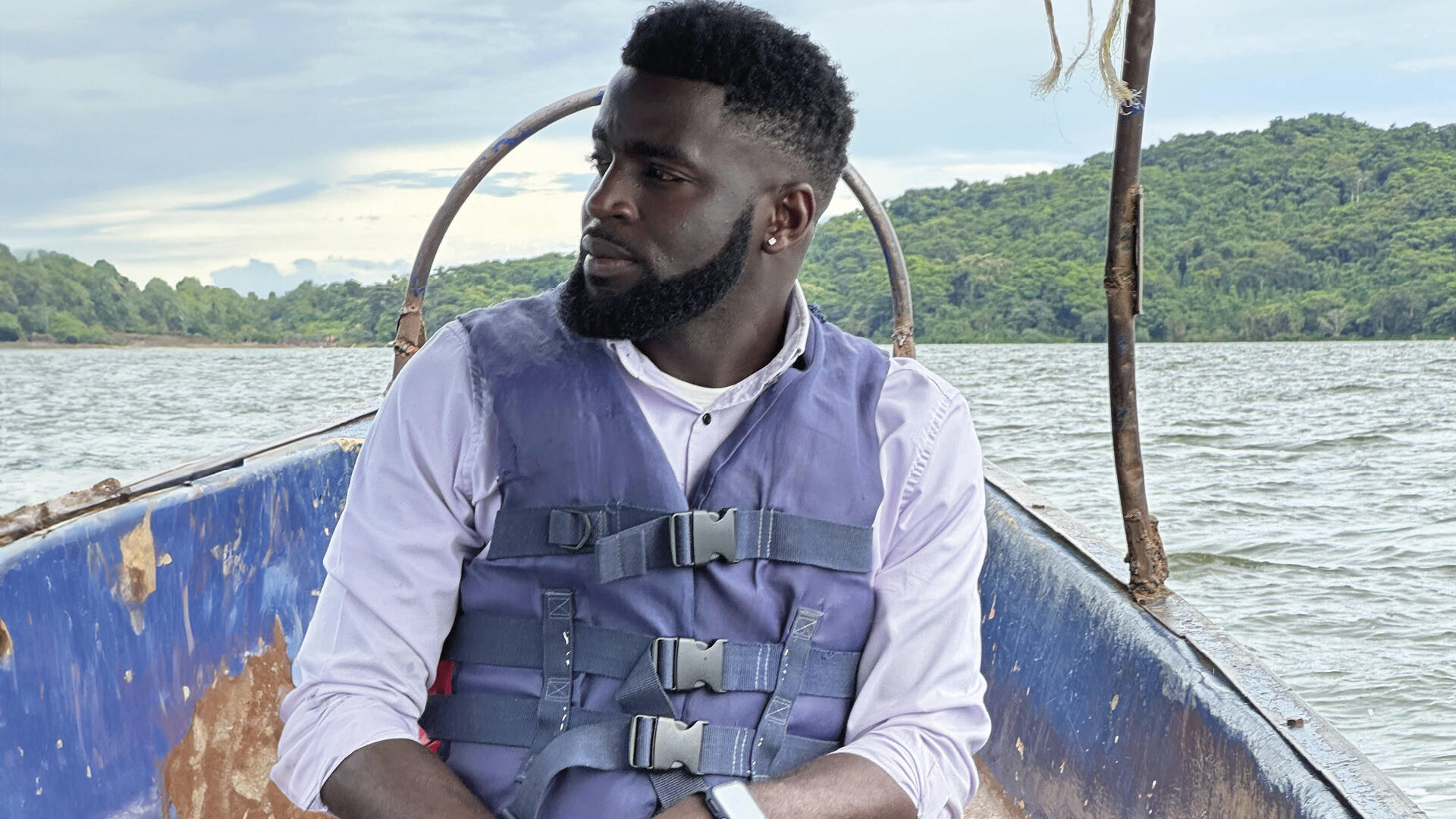Moving to Australia from Uganda – some 11,000km away – to study was a dream come true for Stuart Raymond Kasule, now a member of the Rotary E-club of Brindabella, in NSW and ACT. But once here, the stress of paying the exorbitant international fees nearly forced him to take his own life. That was seven years ago.
By Amy Fallon
“I was struggling, and my then girlfriend kept asking me about my mental health. But because I’ve come from an African background, I didn’t want to hear about it,” said Stuart.
Africa has the highest rate of suicide of all the continents, and in countries like Uganda, East Africa, much stigma remains around this topic, preventing people from getting help.
Fortunately, Stuart was saved by a Canberra pastoral care officer. But the experience stayed with him. Through TAFE, the University of Melbourne and the University of Tasmania, he studied disability, traumatic brain injuries, dementia, autism, ADHD and more, arming himself with information to help others. Stuart also completed suicide prevention training with global organisation LivingWorks Australia.
Today, the 29-year-old is working tirelessly to not only see a reduction in suicide, but to have it decriminalised in Uganda too. The country has filed petitions to overturn laws, but suicide remains a crime there. It’s also an offence in at least 17 other nations. Ghana, in West Africa, voted to decriminalise suicide and attempted suicide earlier this year, following its decriminalisation in Malaysia, Guyana and Pakistan.
Through the Rotary e-club of Brindabella, and with support from Rotary District 9830 Past International Service Director Roslyn Teirney, Rotary International TRF MCH Cadres Chair and RAM Project Advisor Dr Jenny Kerrison, and District 9705 Governor Andrea Grosvenor, Stuart has applied for a global grant. It’s hoped that the Rotary Club of Mbale in western Uganda will host this. He currently has $60,000 in District Designated Funds.

PICTURED: Stuart Kasule with Omuntu Wawansi Organisation Director Andrew Kyamagero visiting Butabika National Mental Health Referral Hospital during a community needs assessments.
“Stuart’s vision is truly aligned with Rotary’s theme this year: Create Hope in the World,” said Jenny.
“He is a good role model for Australian youth as he reflects how Rotary allows us to show our potential if we’re working hard.”
When asked by Senior Specialist International Service in the Rotary International Service and Engagement team, Kiki Melonides, to recommend participants for the District International Service Committee (DISC) Pre-Convention Seminar, Roslyn said that Stuart was number one on the list.
“His faith in Rotary International to achieve his hopes and protect people from old ways of thinking that hold back people in Uganda from sharing their feelings without fear is something truly special,” said Ros. “I knew Rotary International President Gordon McInally would be heartened to know that someone like Stuart is working to achieve his goal of Rotary uniting to enable better mental health across the world and peace between countries and in our souls.”
The campaign spearheaded by Stuart, the son-in-law of Donna Mlejnek, from Rotary Club of Devonport South East, Tas, sparked excitement at the recent Melbourne RI Pre-Convention where, over lunch, Rotarian Salvador Rico from California approached Gordon about Stuart’s bold vision for Uganda.
In recent weeks, Stuart’s ‘Hope for Life Uganda’ proposal, now benefiting from many people’s advice and experience, has captured the attention of the UN Youth Envoy on X, formerly known as Twitter, and the Nelson Mandela Childrens Fund. Stuart is currently having meetings with Chief Programs Officer Dr Stanley.

PICTURED: Stuart spoke to a group of village elders about the stigma attached to suicide in Uganda and asked them how best we can support them with suicide prevention.
He has also signed MOUs with LivingWorks Australia and the Uganda Counselling Association, and is currently in talks with the Ministry of Health Uganda. LivingWorks is hoping to conduct a pilot program in Uganda to train people in suicide prevention on a large scale.
“Our vision for suicide prevention in Uganda is Stuart’s vision. Our role is to back local advocates,” said LivingWorks CEO Shayne Connell.
According to a news report from earlier this year, six per cent of Ugandan police kill themselves after retirement.
“People are scared to talk about their problems,” said Stuart. “If someone says, ‘I’m feeling suicidal’, they may be reported.”
In April, Stuart travelled to Uganda and organised a small summit on decriminalising suicide, uniting the military, police, academics, lawyers and parliament. Not only was this trip self-funded, but he filmed a documentary on this sensitive issue while there.
“I would like to see that Uganda has another mental health hospital or even see an expansion of the hospital so that we have at least one health facility in every region to address the need,” said Stuart.
He also wants to see suicide prevention training for all clinicians, school children, universities, the army and police across the country, a better call centre where people can contact a counsellor, and more language inclusivity in interventions.
With one person lost to suicide every 40 seconds worldwide and 20 attempting it, according to the World Health Organisation (WHO), Stuart stressed that we need to act today.
“It’s not tomorrow that change needs to come, it’s now.”
MAIN PICTURE: Stuart Kasule takes a boat ride to Zinga Island in Wakiso District, Central Uganda to film a documentary about the sensitive issue of suicide in Uganda. The islands have some of the highest suicide rates in the country.
